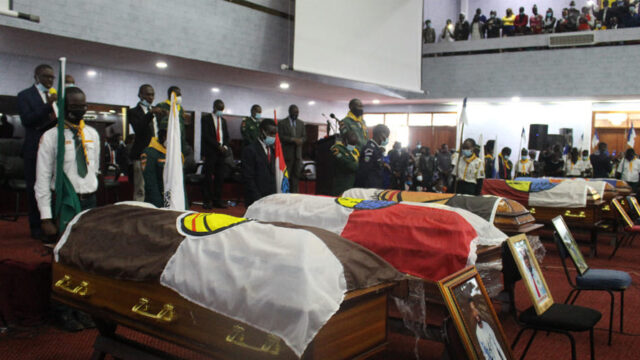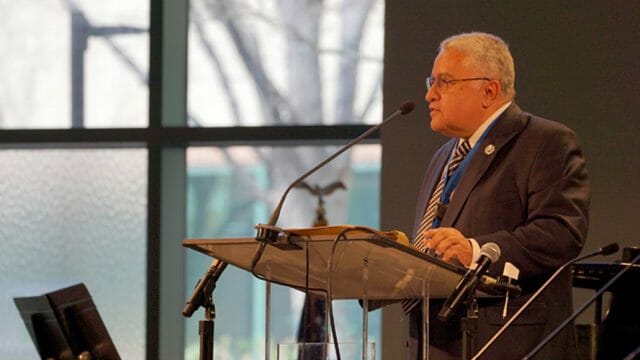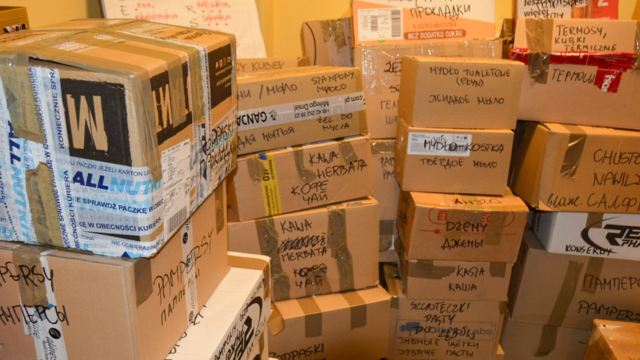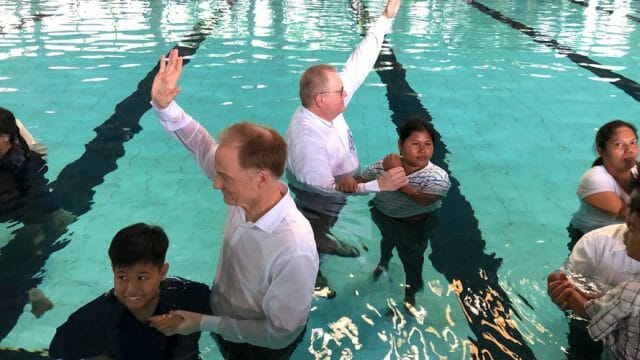Things changed; then they didn’t.

It’s been exactly a year since I last set foot inside a church on Sabbath. Just a year ago the thought of these words escaping my lips would be a certain indication that I would have joined the ranks of the “backslidden.” As an unexpected twist in a thriller, the cause for my truancy from the house of God is not the result of some internal spiritual struggle, but a worldwide pandemic, during which—depending on where you find yourself—the doors of your local church have not seen a single member since March 2020.
When most countries around the world declared nationwide lockdowns—meaning schools, workplaces, and even churches would be closed until further notice—I naively thought that a “few” vacation days from my church responsibilities wouldn’t be so bad. Like many people frequently involved in church activities, the feeling of just wanting to sit down and take a break was increasing in intensity.
So when the news came that there was to be no physical church, quite frankly, I was pleased. Little did I know that this pandemic was to be a part of our lives on a long-term basis, and the imposed “vacation” was to go on for a yearlong (and counting!) intermission to a show for which the second act has been long delayed.
I use the word “delayed” and not “canceled” because, as we have seen, aside from mandates to social distance and wear masks to reduce the spread of COVID-19, the world has found a way to move on. After all, that’s life, isn’t it?
Life Goes On
I used to be so confused when the Bible juxtaposed its warning about the calamities of the end of time with “they ate, they drank, they married wives, they were given in marriage” (Luke 17:27, NKJV).* So, they just lived life? It baffled me how someone could go on with business as usual when everything was crashing down around them. That is, until I saw that aside from not going to church on Sabbath, nothing in my life has really changed. I still have to go to school and study (though online education brings its woes to traditional learners such as myself). I still go to work. I find ways to communicate with others and have fun. And many of us have settled into the routine of online church services.
Even with the mayhem going on around us and the end of global pandemic not yet in sight, we’ve moved on. Things are as they always were. Now past my early pandemic panic about the end of time, I’ve seen myself sink into the same nonchalance as our Bible examples.
I’m quite ashamed to say that Sabbath, once a day of dressing up and heading to a physical structure to worship and fellowship, has turned into a day of waking up just to doze off again with some church service or another playing in the background. It’s hard to concentrate on the service, and with so many available programs I church-hop in a way that I couldn’t do before.
Sabbath School in Mexico? I’m there. Divine service in Jamaica? Amen. Adventist youth service (if I’m still awake at this time) in the United States? Praise God.
Adjusting My New Normal
My status has thus changed. I’m officially not a benchwarmer but a bed warmer. I stay in one heated position on my bed for the whole day and participate in nonactive listening of church and/or related activities while I snooze the Sabbath away in what has been deemed the “new normal”—and indeed it is.
Amid all this I’ve learned a great spiritual lesson. While initiatives and directives from governments and health organizations have resulted in life returning—slowly—to some semblance of what it was like before, the pandemic has made its mark and continues to show us our time on this earth is truly limited.
If we’re not careful, we’ll see the disaster outside our walls and hear the ticking clock, yet roll over in our “safe spaces,” lulling ourselves back to sleep while we mirror the sentiments of the scoffers portrayed in 2 Peter 3:4: “Where is the promise of His coming? For since the fathers fell asleep, all things continue as they were from the beginning of the creation” (NKJV).
I get it. As Adventists, we know all too well about last-day conspiracies, and we may sometimes even roll our eyes at those we consider to be “hyper-vigilant”; but let’s not forget that Jesus’ directive to “occupy till I come” (Luke 19:13, KJV) is not our pass to normalize the abnormalities that are telling us it’s time to gear up.
Maybe it’s not time to run to the hills just yet; but as the many calamities intensify and change life as we know it, with God’s help, we can still put our running shoes by the door.
* Texts credited to NKJV are from the New King James Version. Copyright ã 1979, 1980, 1982 by Thomas Nelson, Inc. Used by permission. All rights reserved.








